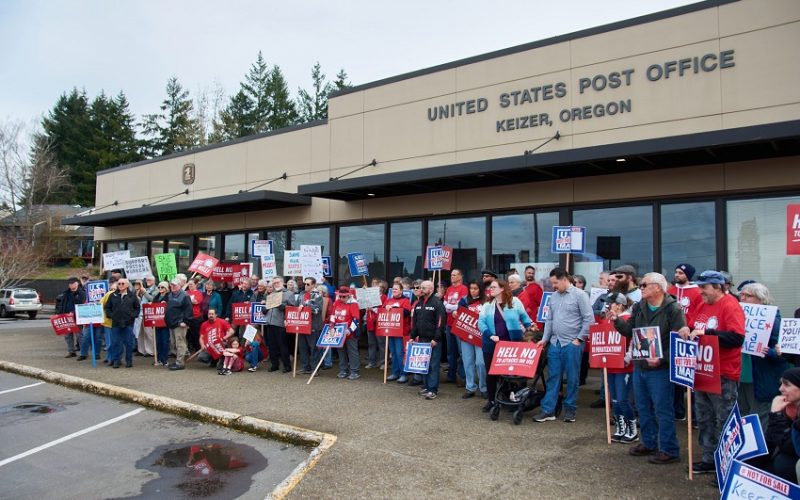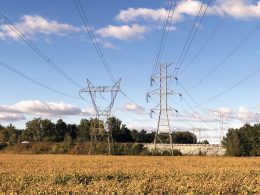Salem, Ore. — Approximately 80 postal workers and their supporters gathered on Sunday near the Keizer Post Office to voice their opposition to potential job cuts and privatization of the U.S. Postal Service (USPS). The rally comes amid growing concerns that President Donald Trump’s administration may push forward with policies that could result in significant reductions in USPS jobs and shift postal operations toward privatization.
With signs reading “Save the Postal Service” and “No to Privatization,” the protesters expressed their fears that these changes would threaten their livelihoods and diminish the quality of mail services across the nation. Many at the rally were long-time postal workers who said the threats of privatization and job cuts could not only hurt employees but also negatively impact rural and underserved communities that rely on USPS for affordable and reliable mail delivery.
“The postal service is a vital public service, and we’re here to stand up for our jobs, for our communities, and for the people who depend on us,” said a postal worker from Salem, who has been with the USPS for over two decades. “Privatization might sound like a good idea to some, but it’s going to make things harder for everyday people.”
Rally participants also highlighted concerns that privatizing the postal service would prioritize profits over public service, potentially leading to higher costs, fewer services, and job insecurity. The protest was part of a broader national movement to protect the USPS, which has faced financial challenges in recent years, including a mandate requiring it to pre-fund retiree health benefits.
Local union representatives joined the rally, emphasizing the critical role USPS plays in the economy, especially in rural and remote areas. “We’re here because we believe in the mission of the U.S. Postal Service,” said one union leader. “It’s about serving the public, not turning a profit.”
The rally is a reflection of the mounting anxiety among postal workers across the country as the USPS grapples with financial struggles, growing competition from private carriers, and increasing pressure from the federal government to cut costs. While Trump’s administration has suggested privatization could improve efficiency, many workers and lawmakers disagree, arguing that privatization would lead to the loss of essential services, especially for rural Americans.
As the protest wrapped up, participants remained resolute, pledging to continue advocating for the preservation of postal jobs and services. With the future of the USPS uncertain, the rally in Keizer was just one example of how postal workers and their supporters are fighting to ensure that the U.S. Postal Service remains a public institution that serves all Americans.











